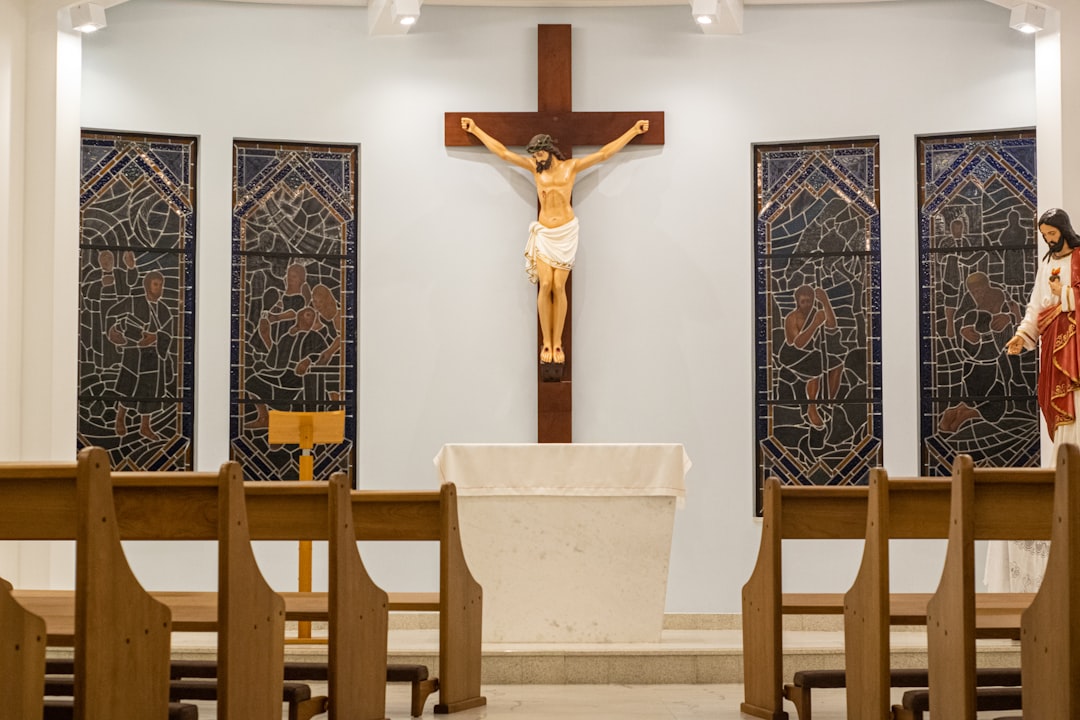An examination of Jeremiah 7s temple warning and call to repentance, and how Jesus redefined worship, exploring the consequences of disobedience, the prophetic voice of Jeremiah, and the theological implications for modern Christianity.
Overview of Jeremiah 7 and its Context
Jeremiah’s message of judgment against Judah is situated within the tumultuous historical background of the book of Jeremiah. The prophet’s scathing critique of Judah’s religious and social practices, including accusations of false religion, idolatrous practices, neglect of the vulnerable, and lack of justice, reveals the moral bankruptcy of the nation [1]. This context provides a rich tapestry for understanding the complexities of the prophetic message and its enduring significance within theological discourse.
For instance, the temple sermon in Jeremiah 7 serves as a pivotal moment in the prophet’s ministry, shedding light on the moral and spiritual state of Judah and setting the stage for the impending judgment that Jeremiah forewarns. The accusations made in Jeremiah’s temple sermon are deeply intertwined with the overall theme of judgment against Judah, highlighting the consequences of straying from the covenant with God and the urgent need for repentance and renewal. This multifaceted context underscores the depth of Jeremiah’s prophetic insights and the intricate interplay of historical, religious, and ethical dimensions within his message.
Furthermore, the significance of Jeremiah’s temple sermon in chapter 7 cannot be overstated, as it serves as a key to understanding his broader message and the ethical decline of Judah. By delving into the historical and cultural milieu of ancient Judah, one gains a profound appreciation for the depth of Jeremiah’s admonitions and the urgency with which he implores the people to reorient their lives in alignment with the divine will. This historical and contextual vantage point provides invaluable insights into the enduring relevance of Jeremiah’s message for contemporary theological reflection and ethical considerations within the Christian tradition.
Moreover, the temple sermon in Jeremiah 7 is emblematic of the prophetic tradition within ancient Israel, exemplifying the unwavering commitment of prophets like Jeremiah to challenge societal injustices and religious malpractices. The prophetic voice, deeply rooted in the historical and social fabric of ancient Judah, resonates with timeless significance, calling individuals and communities to introspection and ethical rectitude. Therefore, the overview of Jeremiah 7 and its context unveils a rich tapestry of theological, historical, and ethical considerations that continue to captivate scholarly and religious inquiries, offering profound insights into the complexities of divine-human relationships and the imperatives of genuine worship and ethical living.
Consequences of Disobedience in Jeremiah 7
Jeremiah’s warnings about the consequences of disobedience were deeply rooted in the historical context of Judah’s unfaithfulness and idolatry. The prophet emphasized the severity of God’s anger and the devastating impact it would have on the land if Judah did not heed the call to repentance and amend their ways. This was a pivotal moment in the prophetic narrative as it underscored the gravity of the situation and the urgent need for the people to turn back to God.
Additionally, the people’s reliance on lying words, which led to disobedience and idolatry, further compounded the impending desolation and absence of joy in the cities of Judah and Jerusalem. This highlights the direct correlation between their actions and the resulting consequences, emphasizing the principle of reaping what one sows. By engaging in deceptive practices and turning away from God, the people of Judah were not only defying divine commandments but also setting themselves on a path of self-destruction, reflecting the profound spiritual and moral decay that had permeated the society.
Furthermore, the consequences warned by Jeremiah, including God’s anger and the devastation of the land if Judah did not repent, provide valuable insights into the prophetic understanding of divine justice and the moral imperatives of covenantal fidelity. The intricate interplay between human agency and divine retribution, as articulated in Jeremiah’s message, underscores the theological complexities of ethical conduct and the enduring consequences of disobedience within the prophetic tradition. This multifaceted understanding of consequences resonates with contemporary theological reflections on the ethical dimensions of human actions and the imperatives of genuine repentance within the Christian faith.
 Jeremiah’s Call to Repentance and Warning Against Deception
Jeremiah’s Call to Repentance and Warning Against Deception
Jeremiah’s call to repentance in his temple sermon is deeply rooted in the historical and religious context of Judah. The prophet’s message was not merely a denunciation of the people’s actions but a heartfelt plea for them to turn away from their sinful ways and return to God. In Jeremiah 7:3-7, the prophet implores the people to amend their conduct and their actions, assuring them that if they do so, they will be able to dwell in the land that God had given to their ancestors. This call to repentance highlights the prophetic urgency of Jeremiah’s message, emphasizing the pivotal role of individual and collective repentance in averting impending judgment.
Moreover, Jeremiah’s warning against deception in the temple sermon sheds light on the prevalent spiritual and moral decay in Judah. The prophet accuses the people of trusting in lying words, leading to disobedience and idolatry. This indictment exposes the deceptive nature of the religious practices that had become ingrained in the society, emphasizing the insidious influence of false teachings and misplaced trust. Such warning against deception serves as a timeless reminder of the dangers of spiritual complacency and the allure of misleading ideologies, resonating with the contemporary challenges faced by individuals and communities in discerning the truth amidst a myriad of conflicting voices.
Furthermore, the connection between the temple sermon and the eventual destruction of Jerusalem and the temple serves as a harrowing testament to the prophetic accuracy and divine authority of Jeremiah’s message. The unfolding of the tragic events foretold by the prophet underscores the inextricable link between unrepentant sin and divine judgment, reinforcing the significance of genuine repentance and spiritual renewal as indispensable components of a faithful covenant relationship with God. Jeremiah’s poignant warning against deception and his call to repentance continue to echo through the annals of history, urging individuals and societies to heed the solemn imperative of genuine repentance and unwavering commitment to truth and righteousness.
Jesus’ Teachings on Worship and Their Connection to Jeremiah 7
Jesus’ redefinition of worship challenges the traditional understanding of religious rituals and practices, emphasizing the significance of genuine devotion and internal transformation over outward religious observances. In Matthew 15:8-9, Jesus quotes the prophecy of Isaiah, stating, “These people honor me with their lips, but their hearts are far from me. They worship me in vain; their teachings are merely human rules.” This aligns with Jeremiah’s critique of the people’s false religion and idolatrous practices, emphasizing the need for a genuine and heartfelt connection with God, rather than empty outward displays of worship.
For instance, Jesus’ teachings on worship resonate with Jeremiah’s message of judgment against Judah and the moral bankruptcy of the people. Both Jeremiah and Jesus emphasize the importance of justice, righteousness, and genuine relationship with God, highlighting the spiritual and ethical dimensions of true worship. In this way, Jesus’ teachings serve as a continuation of the prophetic tradition embodied by Jeremiah, calling for a return to authentic faith and a transformation of the heart.
Additionally, the warning issued by Jesus regarding the destruction of the temple in Matthew 24:1-2 parallels the consequences that Jeremiah foresaw for Judah’s disobedience. Both instances underscore the consequences of false religion and moral corruption, as well as the need for genuine repentance and spiritual renewal. Therefore, the teachings of Jesus not only echo the themes presented in Jeremiah 7 but also provide a timeless framework for understanding and engaging in authentic worship within the Christian faith.
Furthermore, the teachings of Jesus on worship challenge traditional religious practices by emphasizing the importance of inner transformation and the expression of love for God and others. This emphasis on the transformation of the heart and the pursuit of justice and mercy resonates deeply with the ethical and moral imperatives presented by the prophets, including Jeremiah. As a result, modern Christianity is called to reevaluate its adherence to religious traditions and rituals in light of the transformative nature of true worship as exemplified by Jesus.
 Application in Modern Christianity
Application in Modern Christianity
The modern interpretations of Jeremiah 7 and Jesus’ teachings on worship offer profound insights for contemporary Christianity. They prompt believers to critically evaluate the sincerity of their worship, the authenticity of their faith, and the alignment of their religious practices with the ethical imperatives outlined in both Jeremiah’s admonitions and Jesus’ teachings.
For example, in modern Christianity, the call to genuine worship and ethical living, as highlighted in Jeremiah’s temple sermon and Jesus’ redefinition of worship, serves as a compelling reminder to Christians to move beyond mere religious rituals and external displays of faith. It encourages them to embody a holistic and authentic faith that reflects God’s heart for justice, compassion, and righteousness.
Additionally, the impact of these teachings on religious worship and practices in modern Christian contexts underscores their enduring relevance and applicability. By engaging with the prophetic insights of Jeremiah and the transformative teachings of Jesus, contemporary Christians are challenged to embody a faith that transcends mere outward observances and ritualistic routines, calling for a profound reorientation of the heart and a steadfast commitment to justice, mercy, and genuine worship.
Historical and Theological Significance of the Temple in Jeremiah’s Context
The temple in Jeremiah’s context was not merely a physical structure but a symbol of the covenant relationship between God and His people. It represented the heart of religious and communal life, being the central place of worship, sacrifice, and spiritual guidance for the people of Judah and Jerusalem. The significance of the temple was such that its integrity and the faithfulness of its worshippers were intrinsically linked to the well-being of the entire nation.
For instance, the temple’s symbolic and spiritual importance in the context of Jeremiah’s warnings and Jesus’ teachings underscores its profound theological and ethical implications. The temple, as the physical locus of divine encounter and communal worship, epitomized the covenantal relationship between God and His people. However, the desecration of the temple through idolatrous practices and ethical misconduct, as highlighted by Jeremiah, underscored the theological tensions and moral imperatives inherent within the prophetic tradition.
Moreover, the role of the temple in the religious and communal life of the people of Judah and Jerusalem provides invaluable insights into the intricate interplay of religious devotion, communal identity, and ethical conduct. The temple served as a unifying force for the community, providing a sacred space for collective worship, spiritual solace, and communal solidarity. However, the ethical failings and idolatrous practices associated with the temple underscored the profound theological tensions and moral imperatives that permeated the prophetic discourse, urging the people to reevaluate their covenantal responsibilities and ethical obligations.
Furthermore, the theological implications of the temple in Jeremiah’s context were profound, as it signified the tangible presence of God among His people. However, the juxtaposition of the temple’s grandeur and the moral corruption of the worshippers highlighted a critical theological paradox. The physical temple, though revered, could not shield the people from divine judgment if their hearts and actions remained unrepentant and disobedient. This theological tension underscored the necessity for authentic spiritual transformation, transcending external rituals and emphasizing the inward renewal of the heart, as articulated in Jeremiah’s message and later echoed in Jesus’ teachings on true worship.
Idolatrous Practices and Moral Bankruptcy in Ancient Judah
The idolatrous practices in ancient Judah, as condemned by Jeremiah, were deeply entrenched in the religious and cultural fabric of the society. The people engaged in worshipping false gods and idols, disregarding the exclusive worship of the one true God as prescribed in their covenant with Yahweh. For instance, Jeremiah’s temple sermon in chapter 7 denounces the people’s practice of setting up idols and committing heinous acts such as human sacrifice, which were abhorrent to the moral and ethical standards set by Yahweh.
Moreover, Jeremiah exposed the moral bankruptcy of the people through his accusations of neglecting the vulnerable and lacking justice in the land. This neglect of the marginalized and the absence of justice reflected a society that had strayed far from the ethical and moral principles outlined in their covenant relationship with God. The prophet’s rebuke highlighted the societal decay caused by their idolatrous practices, false religion, and ethical misconduct, illustrating the devastating consequences of their departure from true worship and obedience to God.
Furthermore, the impact of these practices on the spiritual and moral bankruptcy of the people, as warned by Jeremiah, provides profound insights into the ethical dimensions of religious devotion and communal life. The idolatrous practices and ethical failings condemned by Jeremiah underscored the profound spiritual and moral decay that had permeated the society, calling for a radical reorientation of the people’s hearts and actions. The prophetic indictment of idolatrous practices and ethical misconduct within the temple, as articulated by Jeremiah, serves as a timeless reminder of the enduring consequences of straying from the ethical imperatives of the covenant and the urgent need for genuine repentance and spiritual renewal.
Theological Implications of Jesus’ Teachings on Worship
Jesus’ redefinition of worship carries profound theological implications, challenging traditional understandings of religious rituals and practices. His emphasis on the inward disposition of the worshiper and the authenticity of faith stands in stark contrast to the external formalism critiqued by Jeremiah, thereby reshaping the theological landscape of worship in profound ways.
#Jeremiah7 #TempleWarning #CalltoRepentance #JesusRedefinitionofWorship #GenuineWorship #SpiritualTruth #Repentance #ReligiousRituals #Authenticity #TempleMisuse #SincereWorship #SpiritualConnection
For instance, the theological implications of Jesus’ teachings on worship, as highlighted in the Gospel narratives, provide invaluable insights into the transformative nature of genuine worship. By emphasizing the primacy of the heart and the genuine devotion of the worshiper, Jesus challenged the prevailing religious norms and rituals, calling for a radical reorientation of the religious consciousness. This theological redefinition of worship, resonating with the ethical imperatives of the prophetic tradition, underscores the enduring relevance of Jesus’ teachings for contemporary theological reflection and ethical considerations within the Christian tradition.
Moreover, the theological implications of Jesus’ teachings on worship extend beyond the mere redefinition of religious practices to encapsulate a profound transformation of the human heart and ethical conduct. By highlighting the inseparable link between genuine worship and ethical living, Jesus’ teachings transcend the ritualistic confines of religious formalism, urging believers to embody a holistic faith that encompasses both genuine devotion to God and compassionate engagement with the world. This theological reorientation, resonating with the ethical and moral imperatives of the prophetic tradition, underscores the enduring relevance of Jesus’ teachings for contemporary theological reflection and ethical considerations within the Christian tradition.
Furthermore, the enduring theological significance of Jesus’ teachings on worship lies in their transformative potential to recalibrate the religious consciousness and ethical conduct of believers. By emphasizing the inseparable link between genuine worship and ethical living, Jesus’ teachings challenge the compartmentalization of religious devotion and ethical conduct, urging believers to embody a holistic faith that integrates genuine devotion to God with compassionate engagement with the world. This theological reorientation, resonating with the ethical and moral imperatives of the prophetic tradition, underscores the enduring relevance of Jesus’ teachings for contemporary theological reflection and ethical considerations within the Christian tradition.
The Prophetic Voice of Jeremiah
Jeremiah’s role as a prophetic voice calling for repentance and warning of impending judgment aligns with the broader prophetic tradition in ancient Israel. His enduring significance in shaping theological discourse throughout history underscores the timeless relevance of his prophecies and their impact on the development of theological thought.
For instance, the enduring impact of Jeremiah’s prophetic voice reverberates through the annals of religious history, informing theological reflections and ethical considerations within the Christian tradition. His unwavering commitment to challenging societal injustices and religious malpractices, as exemplified in the temple sermon of chapter 7, underscores the enduring significance of the prophetic tradition for contemporary theological and ethical inquiries.
Moreover, the enduring significance of Jeremiah’s prophecies and their impact on the development of theological thought underscores the enduring relevance of his prophetic insights for contemporary theological reflection and ethical considerations within the Christian tradition. His uncompromising stand against societal injustices and ethical malpractices, as articulated in the temple sermon of chapter 7, continues to captivate scholarly and religious inquiries, offering profound insights into the complexities of divine-human relationships and the imperatives of genuine worship and ethical living within the Christian tradition.
Furthermore, the enduring legacy of Jeremiah’s prophetic voice serves as a compelling reminder of the timeless relevance of his prophecies for contemporary theological reflection and ethical considerations within the Christian tradition. His resolute commitment to challenging societal injustices and ethical malpractices, as epitomized in the temple sermon of chapter 7, continues to inspire scholars and theologians to grapple with the complexities of divine-human relationships and the imperatives of genuine worship and ethical living within the Christian tradition. Therefore, the prophetic voice of Jeremiah endures as a beacon of ethical rectitude and theological reflection, urging individuals and communities to reckon with the imperatives of genuine repentance and unwavering commitment to truth and righteousness.

 Jeremiah’s Call to Repentance and Warning Against Deception
Jeremiah’s Call to Repentance and Warning Against Deception Application in Modern Christianity
Application in Modern Christianity
